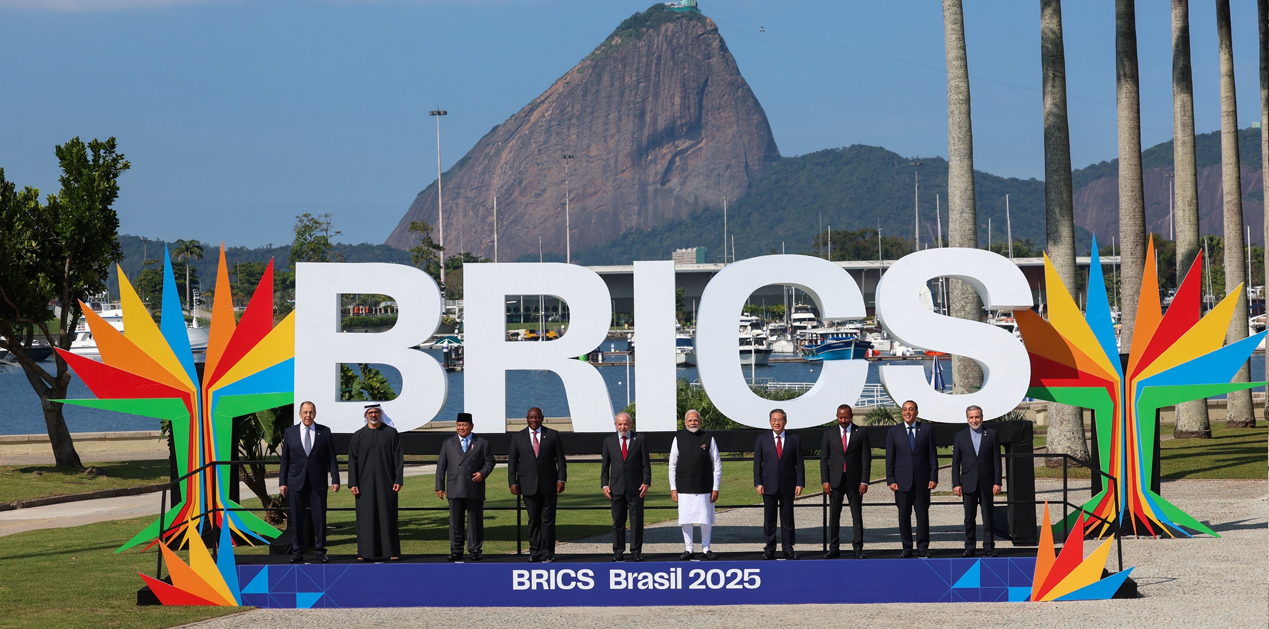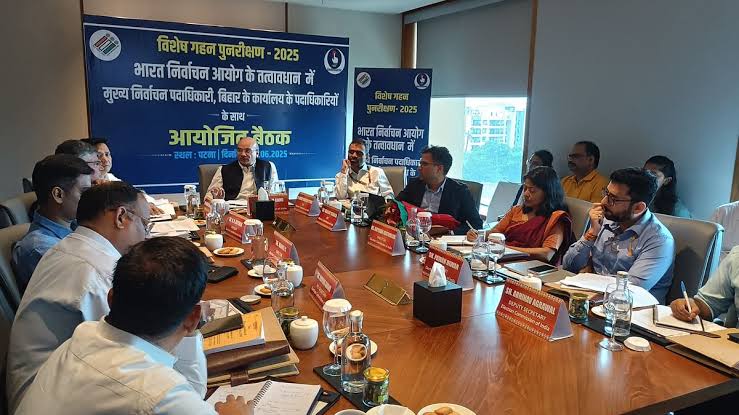Bihar’s Voter Purge: EC’s Special Revision Spurs Political Alarm

The Election Commission’s Special Intensive Revision of voter lists in Bihar raises serious questions about its constitutional mandate, potential voter suppression, and the shrinking space for the marginalised in India’s electoral democracy.
The Election Commission of India (ECI), once revered as an impartial watchdog of the world’s largest democracy, now stands accused of betraying its constitutional oath. The recent Special Intensive Revision (SIR) of electoral rolls in Bihar has set off a political and civil society storm, with widespread accusations that it seeks to systematically disenfranchise the poor, minorities, and marginalised communities under the guise of bureaucratic exercise.
The core of the criticism is not about routine voter list maintenance. It is about the timing, process, and intent—all pointing, critics argue, toward a weaponised bureaucracy acting on behalf of political interests, particularly the ruling Bharatiya Janata Party (BJP). As one critic put it starkly: “The ECI has mortgaged the Constitution, the soul of democracy, and its own institutional modesty at the BJP headquarters.”
This is not mere rhetorical flourish. It is a political and constitutional crisis in the making.
What is the Special Intensive Revision (SIR)?
The SIR is being conducted as part of a targeted process to “clean up” the electoral rolls in Bihar, a state that has long grappled with demographic complexities, migration, caste stratification, and poverty. Unlike the standard summary revisions conducted annually, the Special Intensive Revision involves house-to-house verification, with a focus on identifying “duplicate” or “ineligible” voters.
This sounds legitimate on the surface. After all, no democracy wants bloated or fraudulent voter lists. But in Bihar, the ground reports reveal a very different story.
Field-level officials are demanding documentary proof of citizenship, often without legal basis. Voters—especially in Muslim-majority or Dalit-dominated districts—are being asked to produce legacy documents, Aadhaar, land records, or ration cards. Many don’t possess these papers due to reasons ranging from migration, displacement, illiteracy, and bureaucratic exclusion. Several reports indicate that if a document is “not satisfactory,” names are marked for deletion without due process.
Disenfranchisement by Bureaucracy
The right to vote in India is governed by Article 326 of the Constitution, which grants universal adult suffrage. Nowhere does it state that Indian citizens must prove legacy or land ownership to vote. Yet the process underway in Bihar resembles the National Register of Citizens (NRC) in Assam, which led to the exclusion of nearly 19 lakh people—many of them Muslims—without offering legal recourse.
Constitutional experts have questioned the very legality and mandate of the ECI to demand citizenship documents. According to the Representation of the People Act, 1950, the burden of proof is limited and must be exercised carefully to avoid excluding eligible voters. Legal scholars warn that the ECI’s current approach amounts to overreach—a dereliction of its constitutional role as a neutral arbiter.
Civil rights groups argue that this is not merely a bureaucratic lapse, but a calculated act of exclusion. The targets, as always, are predictable: the poor, the landless, religious minorities, particularly Muslims, and those in politically disempowered castes. The method? Drowning them in paperwork and procedural opacity until their names vanish from the electoral rolls.
A Political Conspiracy in Plain Sight?
The timing of the SIR has only deepened suspicions. Coming just months after the Lok Sabha elections, and amid growing opposition unity in Bihar, the revision appears strategically motivated.
Bihar is crucial to national politics. It sends 40 MPs to the Lok Sabha and has a fragile coalition government led by Nitish Kumar’s Janata Dal (United), supported by the BJP. The recent resurgence of the opposition INDIA bloc—including the RJD and Congress—has threatened the BJP’s dominance in the Hindi belt. Against this backdrop, critics say, tampering with the voter base is a convenient way to tilt the electoral arithmetic.
If that is true, the ECI is no longer a neutral umpire. It is a player in the field, wearing the jersey of the ruling party.
History Repeating Itself?
The Bihar exercise is disturbingly reminiscent of the NRC and CAA (Citizenship Amendment Act) controversies in Assam and across India. There, too, the promise was to weed out “illegal” immigrants. The reality? Widespread exclusion, suicides, detention, and endless litigation for millions, mostly from poor or minority backgrounds.
In fact, several states had begun experimenting with NRC-like filtering through voter list verification. In Karnataka and Telangana, voters were deleted in 2018–2019 en masse without notice, mostly in opposition strongholds. The BJP’s political footprint grew in these areas soon after. Coincidence?
If history is any indicator, such “revisions” are not about accuracy. They are about power.
Voices of Resistance and Constitutional Warning
Numerous political leaders, civil society organisations, and constitutional experts have spoken out. Tejashwi Yadav, former deputy CM of Bihar, called the SIR “a communal and casteist ploy to cut the voter base of the marginalised.” The All India Majlis-e-Ittehad-ul-Muslimeen (AIMIM) warned that the SIR is a dry run for a nationwide NRC, implemented under the radar.
Legal experts point to the Supreme Court’s repeated warnings about voter exclusion. In 2019, the court observed that no person should be removed from the electoral roll without following the due process of law, which includes notice, hearing, and appeals.
But in Bihar, many affected citizens report that they were never informed, nor given a chance to contest the deletion of their names. This is, in effect, disenfranchisement by stealth.
The ECI’s Waning Credibility
Once hailed as the cornerstone of Indian democracy, the ECI’s independence has been under severe scrutiny in recent years. From its refusal to act against hate speech by ruling party leaders, to its uneven implementation of the Model Code of Conduct, the Commission has increasingly been seen as partial.
In the 2024 general elections, it was widely criticised for withholding actual voter turnout data for weeks, failing to address EVM discrepancies, and not countering misinformation spread by political parties. Now, with the Bihar SIR, the erosion of public trust may be complete.
The right to vote is not a privilege. It is a constitutional guarantee, enshrined in the soul of Indian democracy. By conducting a Special Intensive Revision that disproportionately affects the poor and marginalised, the ECI appears to have abdicated that constitutional responsibility.
If the Commission continues on this path, India risks becoming a democracy in name only, where elections are held but participation is restricted, where institutions exist but only serve one party.
The ECI must immediately clarify the legal framework behind the Bihar SIR, ensure due process for every voter flagged for deletion, and halt any exclusionary practices not backed by law. Otherwise, history will record this as the moment when the guardian of democracy became its gravedigger.
All eyes are set on the Supreme Court which has agreed to hear a bunch of petitions against this draconian measure on July 10, 2025.
(Author is a known columnist and political commentator. He formerly served as a history professor at St. Xavier’s College, Mumbai.)

 8 hours ago
8 hours ago





[[comment.comment_text]]